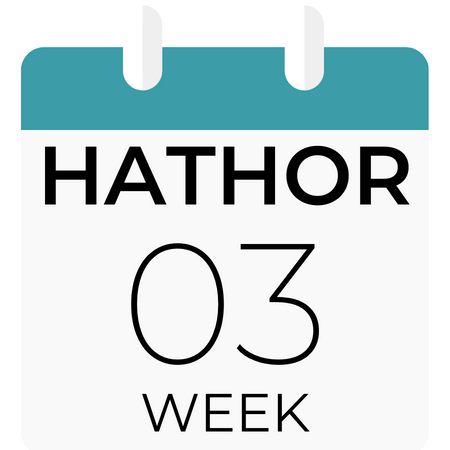The Cost of Discipleship
On this Sunday, the Third Sunday of the blessed month of Hathor, the Church reads Luke 14:25-35. In this reading, Jesus instructs the crowd that the only way to obtain eternal life is to put God first. He tells the people, “If anyone comes to me and does not hate his own father and mother and wife and children and brothers and sisters, yes, and even his own life, he cannot be my disciple” (Luke 14:26).
As humans, it is in our nature to feel incomplete—to feel as if something is missing in our lives. So, to combat this feeling of deficiency, we tend to try to find completion through worldly aspects. Whether through family, money, success in the workplace, drugs/alcohol, or popularity, we try to fill the gaps in our lives. However, any person who believes that they can be complete or made whole without God as the priority of their life is greatly mistaken.
We can only be fully alive by having a strong, ever-growing relationship with Christ. In the Psalms we read, “I am the Lord your God, who brought you up out of the land of Egypt. Open your mouth wide, and I will fill it” (Psalm 81:10). Similarly, Jesus encourages us saying, “I am the bread of life; whoever comes to me shall not hunger, and whoever believes in me shall never thirst” (John 6:35). St. Augustine explains how if a physician treats the symptoms of a disease rather than the actual cause of the disease, then the cure is only temporary. In a likewise manner, the material items of the world may provide temporary satisfaction, but God’s presence in our lives provides eternal satisfaction. We are nourished through our relationship with God and will lose the promise of eternal life if we focus on the material items of the world instead of Him.
We all need to ask ourselves, “What is the most important aspect of our life? What is the one part of my life that I cannot live without?” For some, the answer may be family. For others, the answer may be money or worldly possessions
St. Augustine describes how there is a great paradox seen through the passage from today’s Gospel— why are we told to love our enemies but hate our own families? God is Love and Jesus is not telling us to hate our families; rather, he is using this hyperbolic statement to emphasize that if we want to be true disciples of God then we cannot put anything before him—even our own lives.
St. Basil the Great teaches us, “Whoever would truly be a follower of God must break the bonds of attachment to this life.” Life on this Earth is temporary, so let us separate ourselves from our worldly lives and always keep our eyes on the eternal goal of salvation. As St. James teaches us, “What is your life? For you are a mist that appears for a little time and then vanishes” (James 4:14).
Lord, in all that I do, let me always remember that my ultimate goal is to be with You. While it may seem impossible to detach myself from this worldly life, the only way I can find true joy and comfort is by being completely united and wholly focused on You.
Sources:
- Bible, English Standard Version
- Catena Bible, Church Father Commentaries
- Commentaries on the Gospel of St. Luke by Father Tadros Malaty

